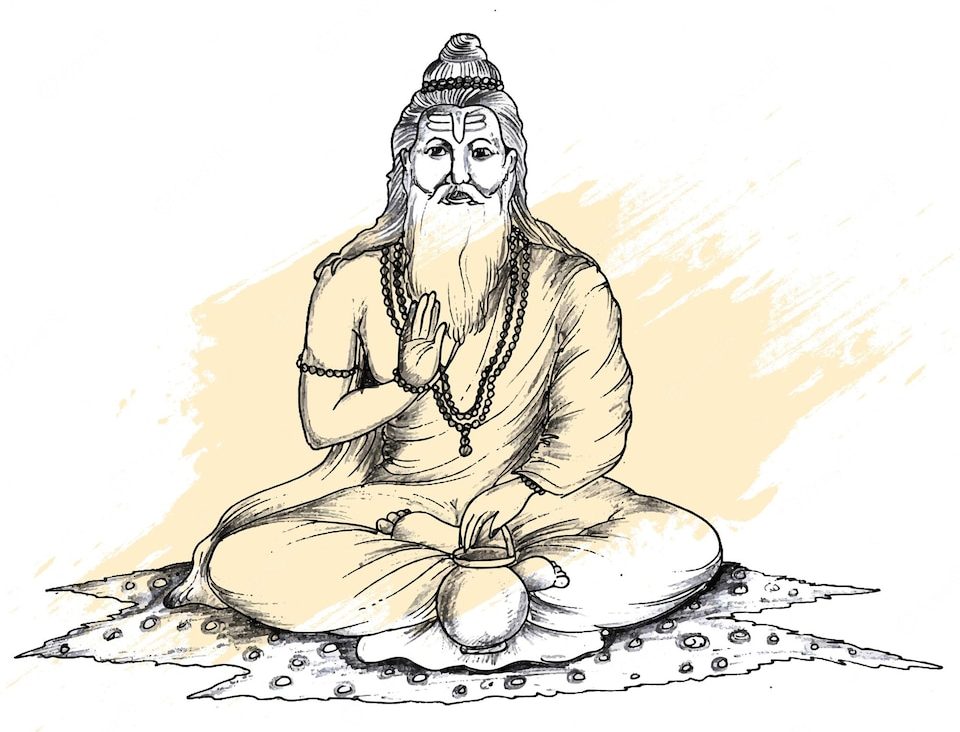
Maharishi Bhadrasena
The Enlightened Sage of Virtuous Wisdom
Introduction:
Maharishi Bhadrasena, an illustrious figure in Hindu mythology, was renowned for his profound wisdom and virtuous teachings. This article delves into the early life and education of Maharishi Bhadrasena, his career as a sage and teacher, his relationship with gods, his disciples, his contributions to Hindu culture, his enduring legacy, an overview of his significant contributions to Hinduism, the books associated with him, and a conclusion highlighting his significance.
Early Life and Education:
The early life of Maharishi Bhadrasena is shrouded in myth and legend. Born into a noble lineage, he displayed exceptional intellectual prowess and spiritual inclination from a young age. He received a comprehensive education in Vedic scriptures, philosophy, and moral principles, nurturing his profound understanding of spiritual wisdom.
Career as a Sage and Teacher:
Maharishi Bhadrasena’s life was dedicated to the pursuit of spiritual enlightenment and the dissemination of virtuous wisdom. As a sage and teacher, he eloquently expounded on the importance of ethical conduct, moral values, and righteous living. He guided seekers on the path of spiritual growth, helping them cultivate inner virtues and lead a purposeful life.
Relationship with Gods:
Maharishi Bhadrasena enjoyed a close relationship with the gods, who revered his spiritual wisdom and virtuous nature. His sincere devotion and righteous character earned him the blessings and guidance of divine beings. The gods acknowledged his deep understanding of cosmic truths and respected his role as a spiritual guide for humanity.
Other Disciples:
Although specific names of Maharishi Bhadrasena’s disciples may not be widely known, he attracted numerous seekers who were inspired by his virtuous teachings. His disciples imbibed his ethical principles and spiritual wisdom, carrying forward his teachings to subsequent generations. Through his disciples, Maharishi Bhadrasena’s virtuous legacy endured.
Contributions to Hindu Culture:
Maharishi Bhadrasena made significant contributions to Hindu culture through his emphasis on moral values and righteous living. His teachings inspired individuals to embrace compassion, truthfulness, self-discipline, and integrity. He emphasized the interconnectedness of all beings and the importance of harmonious coexistence, fostering a more virtuous and compassionate society.
Legacy:
Maharishi Bhadrasena’s legacy lies in his embodiment of virtuous wisdom and his profound impact on the spiritual fabric of Hinduism. His teachings continue to inspire individuals to lead a life of moral uprightness, inner transformation, and spiritual growth. His emphasis on ethical conduct and virtuous living serves as a guiding light for those seeking a meaningful and purposeful existence.
Books Written by Him:
Although specific books attributed to Maharishi Bhadrasena may not be widely known, his teachings and moral principles are believed to be embedded within the broader body of Hindu scriptures. His wisdom and virtuous insights can be found in the teachings of ancient sages and philosophers, emphasizing the importance of ethical conduct and righteous living.
Conclusion:
Maharishi Bhadrasena, the sage of virtuous wisdom, occupies a revered place in Hindu mythology and spirituality. His teachings on moral values and righteous living continue to shape the moral fabric of Hindu culture. Maharishi Bhadrasena’s profound impact on Hinduism lies in his embodiment of virtuous principles and his role as a spiritual guide. His legacy inspires individuals to cultivate inner virtues, embrace compassion, and lead a life of ethical conduct. Maharishi Bhadrasena’s enduring influence perpetuates the rich spiritual heritage of Hinduism, reminding us of the transformative power of virtuous wisdom.
Editor – Kaalchakra Team
[ Note – Before Concluding anything as a Finale, Please Go through Original Scriptures of Vaidik Literature Written in Sanskrit and Also with Meaning of That time of Language. Because English is a Limited language to Explaining the Deeper Knowledge of Vaidik Kaal. ]
